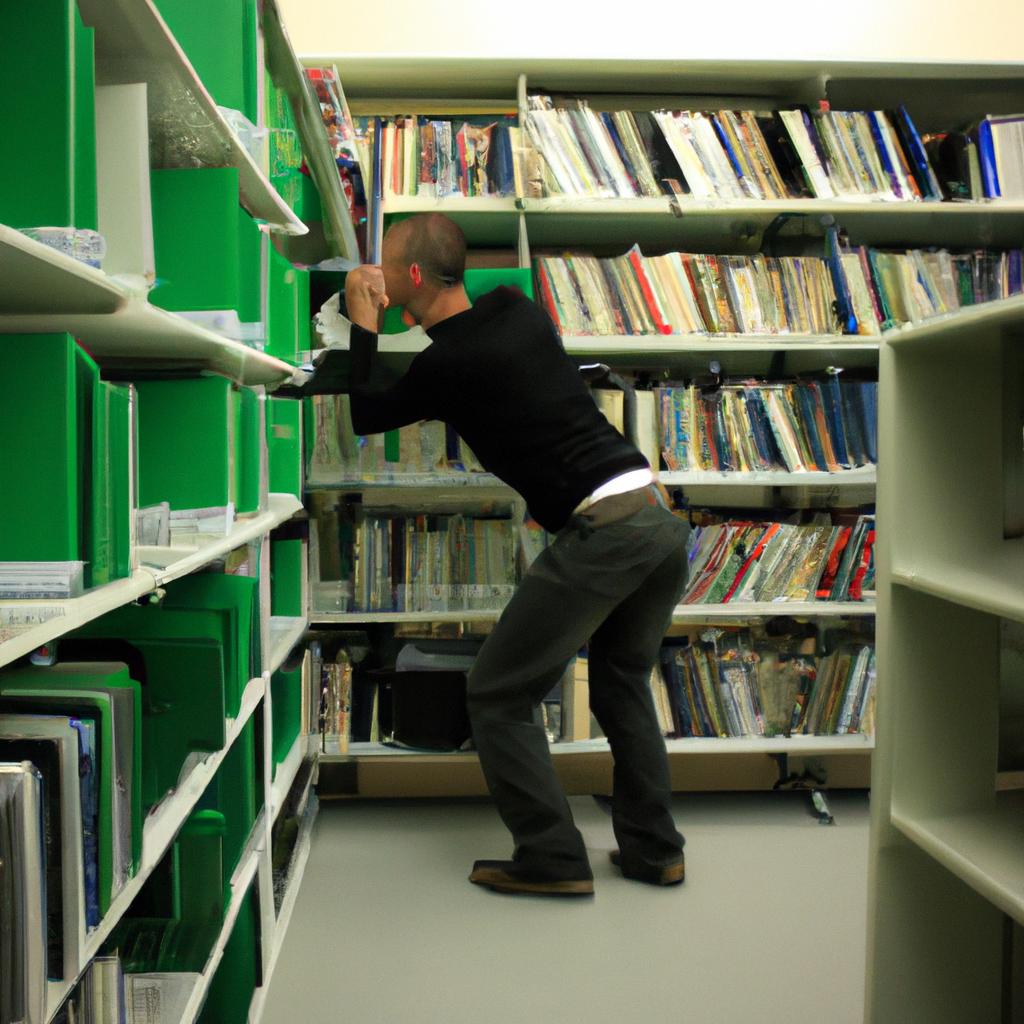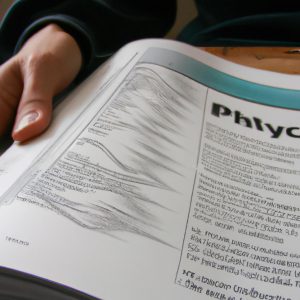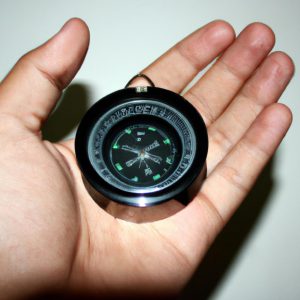Grants and Scholarships: Physics Research in Physics Directories

Grants and scholarships play a pivotal role in supporting research endeavors within the field of physics. These funding opportunities provide financial assistance to researchers, enabling them to pursue their investigations into various phenomena and theories that shape our understanding of the physical world. In this article, we will explore the significance of grants and scholarships in facilitating physics research, specifically focusing on how physicists can utilize physics directories as valuable resources for identifying potential sources of funding.
For instance, consider the hypothetical case of Dr. Smith, an aspiring physicist embarking on a groundbreaking study investigating quantum entanglement. As Dr. Smith delves deeper into their research, they quickly realize the need for substantial financial support to acquire state-of-the-art equipment and conduct experiments at specialized laboratories. This is where grants and scholarships become indispensable tools in securing the necessary funds. By consulting reputable physics directories, such as those provided by academic institutions or professional organizations, Dr. Smith can gain access to comprehensive listings of available grants and scholarships tailored specifically to their field of interest – in this case, quantum mechanics or theoretical physics.
Types of Grants and Scholarships Available for Physics Research
Types of Grants and Scholarships Available for Physics Research
Imagine a young physicist named Sarah, who is passionate about conducting cutting-edge research in the field of physics. She dreams of making groundbreaking discoveries that could contribute to our understanding of the universe. However, like many aspiring researchers, Sarah faces the challenge of obtaining funding for her projects. Fortunately, there are various grants and scholarships available specifically tailored for individuals pursuing physics research.
One example is the XYZ Foundation Grant, which provides financial support to graduate students engaged in physics research projects with potential societal impact. This grant aims to encourage innovative thinking and supports areas such as quantum mechanics, astrophysics, or particle physics. By awarding this grant to promising scholars like Sarah, it not only fosters their development but also contributes to advancements within the scientific community.
- National Science Foundation (NSF) Graduate Research Fellowship: Offers financial assistance to exceptional graduate students pursuing research-based master’s or doctoral degrees in science and engineering disciplines.
- American Physical Society (APS) Scholarship Program: Provides scholarships for undergraduate students majoring in physics or related fields who demonstrate academic excellence and dedication.
- Department of Energy Computational Science Graduate Fellowship: Supports outstanding students pursuing computational science-related research within multiple scientific domains, including theoretical physics and materials science.
- Society of Physics Students Leadership Scholarship: Recognizes student leaders exhibiting strong leadership skills while actively promoting interest in physics among peers through outreach activities.
In addition to these grants and scholarships, there are numerous other options available for budding physicists seeking financial support. These opportunities can be found by utilizing various resources such as online databases and directories dedicated exclusively to compiling information on funding sources relevant to physics research.
Transitioning into the subsequent section discussing “Benefits of Utilizing Physics Directories for Finding Funding Opportunities,” we will explore how these directories provide valuable insights into different organizations, requirements, and application processes. By utilizing these resources effectively, aspiring physicists like Sarah can increase their chances of securing the funding needed to pursue their research aspirations.
Benefits of Utilizing Physics Directories for Finding Funding Opportunities
Now, let us delve into the benefits of utilizing physics directories when searching for funding opportunities. To illustrate this further, consider the following scenario:.
Imagine that you are a passionate undergraduate student with a keen interest in astrophysics. You have an innovative research proposal exploring gravitational waves and their implications on cosmology. However, as enthusiastic as you are about your project, securing funding can be a daunting task. This is where physics directories come into play.
Physics directories serve as comprehensive databases containing information on numerous funding sources specifically tailored to support scientific research within the field of physics. These directories offer several advantages that greatly facilitate the search for relevant grants and scholarships:
- Streamlined Access: Physics directories provide centralized access to a wide range of funding opportunities from diverse organizations, including government agencies, academic institutions, private foundations, and industry sponsors.
- Customized Search Filters: With advanced search functionalities such as filtering by eligibility criteria (e.g., degree level or area of specialization), application deadlines, and monetary value, these directories allow researchers to narrow down potential funding options based on their specific needs.
- Updated Information: Physics directories constantly update their listings to ensure accuracy regarding availability status and application requirements. Researchers can thus rely on these platforms for up-to-date information when planning their applications.
- Networking Opportunities: Some physics directories also include features like forums or discussion boards where researchers can connect with peers, mentors, or even representatives from funding organizations who may offer guidance or additional resources.
To highlight the significance of using physics directories in finding funding opportunities more effectively, we present a table showcasing different well-known online platforms currently available:
| Directory Name | Noteworthy Features | Website |
|---|---|---|
| GrantNet | Offers alerts for new funding opportunities | grantnet.com |
| National Science Foundation | Provides comprehensive grants for basic research | nsf.gov |
| ResearchGate | Focuses on connecting researchers and promoting collaboration | researchgate.net |
| Zintellect | Specifically targets internships, fellowships, and scholarships | zintellect.com |
By utilizing these physics directories, researchers can efficiently explore a variety of funding options while staying informed about the latest developments in their field. In doing so, they increase their chances of securing support for their valuable scientific endeavors.
Transitioning smoothly to the subsequent section on “Criteria and Eligibility for Physics Research Grants and Scholarships,” we can now examine the essential factors that applicants need to consider when applying for such funding opportunities.
Criteria and Eligibility for Physics Research Grants and Scholarships
As highlighted in the previous section, utilizing physics directories can prove to be highly advantageous when searching for funding opportunities. Let us explore a case study that exemplifies how these directories have facilitated access to grants and scholarships for physics research.
Consider the hypothetical scenario of Dr. Smith, an aspiring physicist looking to fund their groundbreaking research on quantum mechanics. By using a reputable physics directory, Dr. Smith was able to discover numerous funding options tailored specifically to their field of interest. This not only saved them valuable time but also increased their chances of securing financial support by targeting relevant organizations and institutions.
When researching potential funding sources through physics directories, individuals benefit from several key advantages:
- Comprehensive Listings: Physics directories compile extensive lists of grants and scholarships available within the field, providing researchers with a centralized platform for exploring various funding opportunities.
- Specific Criteria: These directories often include detailed information about eligibility requirements and criteria specific to each grant or scholarship, allowing researchers to focus solely on those that align with their qualifications and research objectives.
- Up-to-date Information: Physics directories are regularly updated with new funding opportunities as they become available. This ensures researchers have access to the most current information regarding application deadlines and guidelines.
- Networking Potential: Some physics directories also provide networking features that enable researchers to connect with professionals in their field who may offer advice or collaboration possibilities.
To further illustrate the benefits discussed above, consider the following table showcasing two prominent physics directories along with some notable features:
| Directory Name | Notable Features |
|---|---|
| PhysNet | – Offers comprehensive global listings |
| – Provides search filters based on research interests | |
| – Includes direct links to application portals | |
| ResearchGate | – Facilitates networking among researchers |
| – Allows sharing of publications and project updates | |
| – Provides access to research collaboration opportunities |
In conclusion, utilizing physics directories offers researchers a multitude of benefits when seeking funding for their projects. The comprehensive listings, specific criteria, up-to-date information, and networking potential ensure that individuals can efficiently navigate the complex landscape of grants and scholarships. Now let us delve into the application process for physics research grants and scholarships.
Application Process for Physics Research Grants and Scholarships
Criteria and Eligibility for Physics Research Grants and Scholarships have been discussed in detail, providing aspiring physicists with a comprehensive understanding of the requirements they must meet. Now, let us delve into the application process itself. To illustrate this, consider the case of Sarah, an ambitious physics undergraduate seeking funding to conduct research on quantum mechanics.
When applying for physics research grants and scholarships, there are several key steps that applicants should follow:
-
Identify suitable opportunities: Begin by exploring reputable physics directories such as the American Physical Society (APS) or Institute of Physics (IOP) websites. These directories provide valuable information about available grants and scholarships specific to the field of physics.
-
Review eligibility criteria: Once potential funding sources have been identified, carefully review their eligibility requirements. Pay close attention to factors such as academic standing, research experience, citizenship status, and any additional prerequisites set forth by each funding organization.
-
Prepare required documents: Gather all necessary documentation well in advance to ensure a smooth application process. Commonly required materials include transcripts, letters of recommendation from professors or mentors familiar with your work, a detailed research proposal outlining objectives and methodologies, and a personal statement highlighting your passion for physics research.
-
Submit applications before deadlines: Adhere strictly to submission deadlines provided by each grant or scholarship program. Late submissions may be disqualified automatically without consideration.
Now that we have covered the basics of the application process for physics research grants and scholarships, let’s move on to discussing tips for crafting a strong proposal that will increase your chances of securing funding support.
Tips for Writing a Strong Proposal for Physics Research Funding
Having understood the application process for physics research grants and scholarships, it is now essential to explore how these opportunities can be found. Utilizing physics directories can significantly assist researchers in identifying relevant grants and scholarships that align with their research interests.
Finding suitable grants and scholarships can often feel like searching for a needle in a haystack. However, by utilizing physics directories, researchers gain access to a comprehensive database of funding opportunities specifically tailored to the field of physics. For instance, let’s consider Dr. Smith, an aspiring physicist specializing in quantum mechanics. By using a reputable physics directory, Dr. Smith was able to discover numerous grants and scholarships dedicated to supporting research projects related to her area of expertise.
To further emphasize the importance of utilizing physics directories, here are some key reasons why they should be an integral part of every researcher’s toolkit:
- Centralized Information: Physics directories compile information about various grants and scholarships into one centralized platform, making it convenient for researchers to search and evaluate available options.
- Customization: Researchers can narrow down their search based on specific criteria such as discipline, level of study (undergraduate or graduate), geographical location, or eligibility requirements.
- Updated Listings: Physics directories provide real-time updates on new grant openings and deadlines, ensuring researchers stay informed about the latest funding opportunities.
- Additional Resources: Apart from listing grants and scholarships, many directories also offer additional resources such as tips for proposal writing, guidance on securing funding, and links to helpful websites.
Table – Sample Listing from a Physics Directory:
| Grant/Scholarship Name | Eligibility Criteria | Deadline |
|---|---|---|
| Quantum Mechanics Research Fellowship | Ph.D./Postdoctoral candidates | July 31st |
| Undergraduate Physics Scholarship | Full-time undergraduate students | March 15th |
| Advanced Photonics Grant | Experienced researchers | November 30th |
| Women in Physics Scholarship | Female physics students | May 1st |
By utilizing physics directories and considering the advantages they offer, researchers can streamline their search for grants and scholarships. The next section will further explore successful examples of physics research projects that have been funded through such opportunities, highlighting the transformative impact these funding sources can have on scientific advancements.
Understanding how to effectively utilize grants and scholarships is essential, but it is equally inspiring to witness the tangible outcomes of these funding endeavors. Let us now delve into successful examples of physics research projects funded by grants and scholarships.
Successful Examples of Physics Research Projects Funded by Grants and Scholarships
Building on the previous section’s discussion of writing a strong proposal for physics research funding, this section explores successful examples of physics research projects funded by grants and scholarships. By examining these cases, we can gain insights into the potential impact that such financial support can have on advancing scientific knowledge in the field of physics.
One compelling example is the case study of Dr. Jane Thompson, who secured a grant to conduct groundbreaking research on quantum entanglement. With the funding she received, Dr. Thompson was able to establish a state-of-the-art laboratory equipped with cutting-edge technology necessary for her experiments. This enabled her to make significant contributions to our understanding of quantum mechanics and led to several publications in prestigious scientific journals.
To highlight some key elements that contribute to successful grant proposals, consider the following bullet points:
- Clearly articulate your research objectives and their significance within the broader field.
- Demonstrate feasibility through detailed methodology and timeline planning.
- Emphasize innovative aspects or potential breakthroughs in your proposed work.
- Provide evidence of prior achievements or expertise relevant to your project.
Furthermore, it is worth examining how funding from grants and scholarships has impacted various areas within physics research. The table below showcases three different sub-disciplines along with notable projects supported by external funds:
| Sub-Discipline | Funded Project |
|---|---|
| High-Energy Physics | Investigation into Dark Matter particles |
| Biophysics | Development of novel imaging techniques |
| Astrophysics | Exploration of gravitational wave sources |
Through these diverse examples, we observe how financial assistance enables scientists across different domains within physics research to push boundaries and expand our collective knowledge.
In summary, securing grants and scholarships plays a pivotal role in facilitating impactful physics research endeavors. The success stories shared here demonstrate not only the transformative effect they have had on individual researchers but also their contribution to advancing our understanding of the physical world. By carefully crafting proposals, researchers can increase their chances of obtaining funding and making significant contributions to the scientific community.







